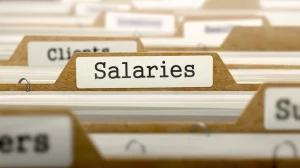

Minister of Finance and the Public Service
The Restructuring of Public Sector Compensation

This week the Statistical Institute of Jamaica (STATIN) reported that the Jamaican economy grew by 0.6 per cent in the quarter ending September 2019 over the quarter ending September 2018. This represents the 19th consecutive quarter of economic growth.
STATIN also reported that Q3 2019 GDP declined by 0.1 per cent relative to Q2 2019 GDP. However, in aggregate the economy grew in the period January–September 2019 over the period January–September 2018 as well as in the period June–September 2019 over June–September 2018.
Comparing the same quarter in one year with the same quarter in a previous year evens out seasonal effects and gives an undistorted view of how the economy is performing over time.
Let us take a longer perspective. Over the past 30 years Jamaica has had at least two problems with economic growth — (i) the low level relative to our peers in Latin America and the Caribbean and (ii) the instability and volatility of growth and decline. Due to the collective achievements of the Jamaican people, we are confronting both of these challenges and making steady progress, though much remains to be done.
With respect to the former problem, while our peers in Latin America and the Caribbean experienced higher growth during the 1990s and the years prior to 2009, Jamaica struggled with growth that, on average, was substantially lower.
With respect to the latter, the frequent and unpredictable interchange between quarterly growth and quarterly decline stifled investment and contributed to human capital flight, which further depressed growth prospects in a vicious cycle.
Close examination of the data suggests that we are steadily resolving these problems, though we still have much work to do.
Though it is neither the beginning nor end of the matter, comparison with peers is always important. Jamaica does not exist in a vacuum. Global economic forces that determine the velocity, intensity and change of trade and capital flows, or that influence commodity prices and financing conditions affect countries of Latin America and the Caribbean similarly, in positive or negative ways.
For 2018/19 Jamaica grew by two per cent, which exceeded average growth in Latin America and the Caribbean which was one per cent. According to World Bank data, Jamaica’s growth for 2017 and 2016 also exceeded the average in Latin America and the Caribbean.
For the current financial year 2019/20, US-China trade tensions and lower global growth have led to declines in the prices of many commodities, including alumina, iron ore, soybeans and copper. As a result of this and other factors, growth in Latin America and the Caribbean for 2019 is forecast by the International Monetary Fund (IMF) to average only 0.2 per cent.
Jamaica is affected by similar external shocks. Alumina prices fell from approximately US$500 per tonne in 2016 to US$300 per tonne in 2019, below the reported production cost of JISCO/Alpart, and the closure of the JISCO/Alpart alumina refinery in September (for upgrade, expansion and eventual reopening) is an example of such an external shock. This closure has been in the public domain for some time and was correctly forecast to affect Q3 and Q4 growth.
Despite this, however, and after factoring in the resulting 18 per cent decline in the bauxite/alumina sector, the Jamaican economy grew overall in the third quarter of 2019 over the third quarter of 2018 by a modest 0.6 per cent, which speaks to the improving resilience of the Jamaican economy. There was growth in all eight service sectors as well as growth of 4.9 per cent in the manufacturing sector. Combined, this was enough to offset the steep decline in the bauxite/alumina sector.
The Planning Institute Of Jamaica (PIOJ) projects that growth for all of 2019/20 will be 0.7 per cent, which is ahead of IMF forecasts for the Latin American and Caribbean average.
So though it is little comfort, we are and have been doing better than our peers. However, given the long period of underperformance relative to the same group, we have lost ground that we need to make up. Much work remains to be done therefore.
Looking forward to the 2020/21 financial year, there is full expectation that economic growth will steadily return to the previous trajectory prior to the JISCO/Alpart closure, and the GOJ will continue to use all levers at our disposal to elevate levels of growth beyond this across the medium term.
We are also making progress in the stability and resilience of economic growth. This is new and more important than it first appears.
Jamaica has now experienced 19 consecutive quarters of economic growth, which is more than double the previous longest stretch of continuous economic growth since Jamaica started measuring growth quarterly in 1997.
The previous longest period of consecutive quarterly economic growth was only nine quarters, between Q3 2002 and Q3 2004, and again between Q3 2005 and Q3 2007.
That is, since 1997, outside of the current 19 consecutive quarters (or nearly five years) of economic expansion, Jamaica would have experienced a maximum of only two years of consecutive quarterly economic growth before sliding into many quarters of economic decline. More often, growth was experienced for one year or less before sliding into multiple quarters of economic decline.
Consider also that over the period beginning in 1997, when we started measuring growth quarterly, and ending prior to the beginning of 2015, Jamaica experienced 33 quarters of year-over-year economic decline and 37 quarters of year-over-year economic growth.
By comparison, over the same 70 quarters the United States had 66 quarters of year-over-year economic growth and only four quarters of year-over-year economic decline. (Source: Federal Reserve Bank of St Louis)
This historical macroeconomic instability of the Jamaican economy, characterised by many swings between growth and decline, is exactly the opposite of what we want, for reasons mentioned earlier.
The historical growth experienced in the short bursts was unsustainable (as the then underlying macroeconomic policies were also unsustainable) and as a result, the gains of a few quarters of growth were erased by subsequent quarters of economic decline in a cyclical fashion, and per capita GDP stagnated over two decades.
Macro-stability on the other hand predisposes the economy to longer periods of economic expansion, as we have been experiencing, while at the same time preserving policy flexibility and policy space in the event of a downturn for counter-cyclical options.
Due to our collective effort, we are finally in a different place of macro-stability, though there isn’t full recognition of this yet. Though vulnerabilities exist, our future is brighter than it has ever been. The storm clouds of the JISCO plant closure will pass and Jamaica will return to higher levels of growth in the 2020/21 financial year and beyond.
Published in the Jamaica Observer – January 02, 2020
Dr Nigel Clarke is Minister of Finance and the Public Service and Member of Parliament for St Andrew Northwestern. Send feedback to opedjamaica@gmail.com.
The Hon. Nigel Clarke, D.Phil., MP
Minister of Finance and the Public Service
30 National Heroes Circle, Kingston 4
Tel: (876) 932-4656 / 4660 / 4655
Eml: opedjamaica@gmail.com







Finance Minister, Fayval Williams, notes comments in the public domain concerning the appointment of Mr. Dennis Chung as Chief Technical Director (CTD) of the Financial Investigations Division (FID) and a proposal that the Government inserts itself into the process by over-turning the recommendation of the Office of the Services Commission (OSC).

Finance Minister, Fayval Williams, notes comments in the public domain concerning the appointment of Mr. Dennis Chung as Chief Technical Director (CTD) of the Financial Investigations Division (FID) and a proposal that the Government inserts itself into the process by over-turning the recommendation of the Office of the Services Commission (OSC).

The Minister of Finance and the Public Service is pleased to announce the appointment of Mr. Dennis Chung as Chief Technical Director of the Financial Investigations Division (FID), effective June 2, 2025.

A Jamaica Teachers Association Memorandum dated April 23, 2025 to its membership from the Secretary General, Mark Nicely, stated that the Ministry of Finance and the Public Service had outlined that payments for the increments should be made during the first quarter of the 2025-2026 Financial Year.
Stay in the know with everything going on at the Ministry of Finance and the Public Service by subscribing the MOFPS INSIDER magazine.
Stay in the know with everything going on at the Ministry of Finance and the Public Service.